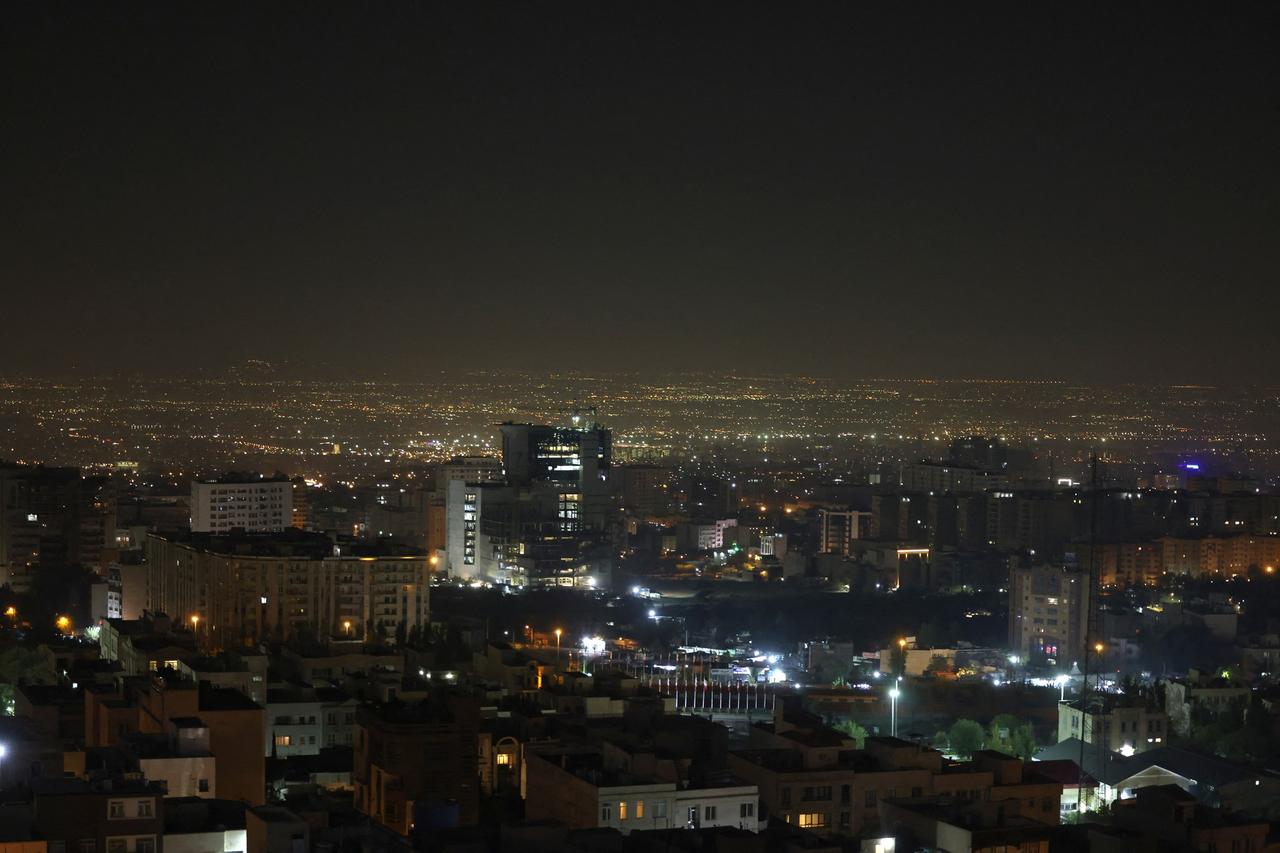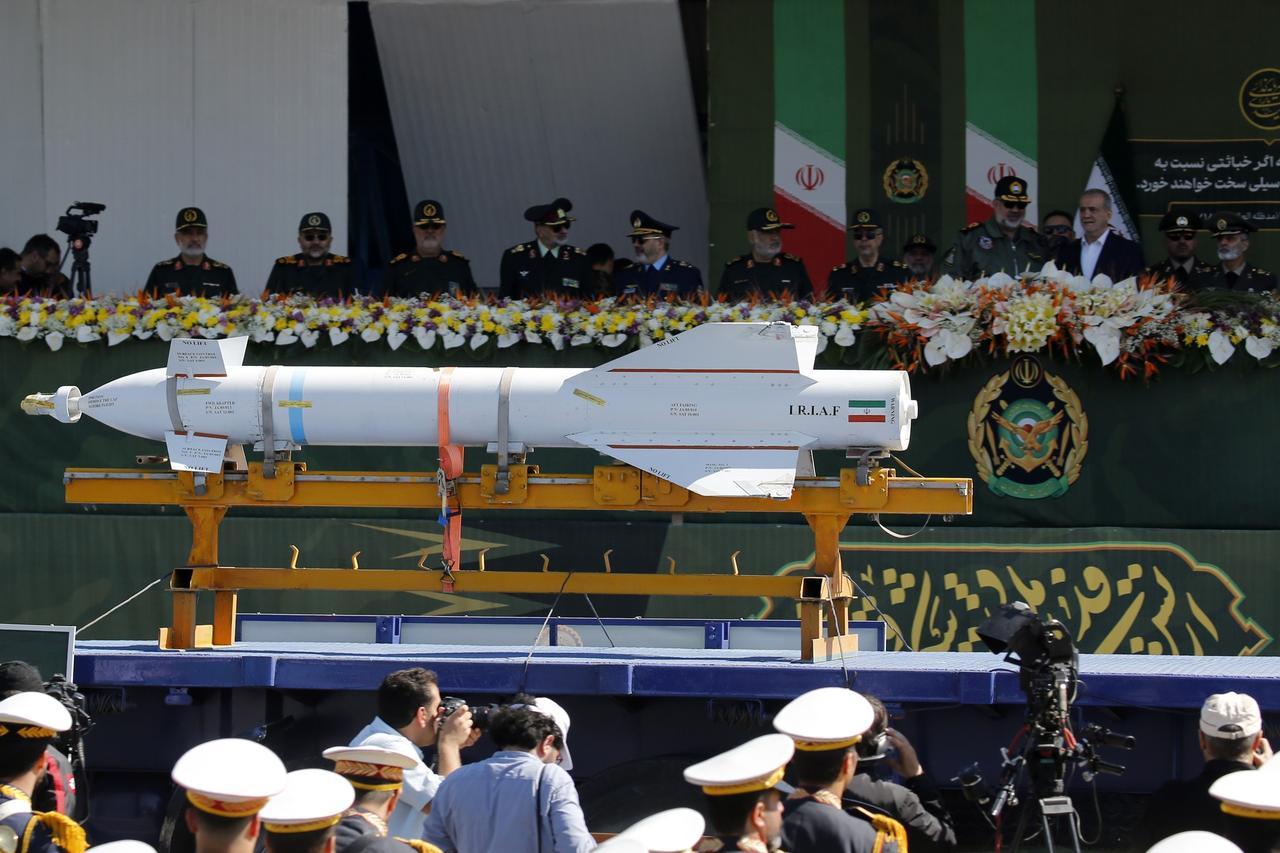
Israel is preparing to launch a military operation against Iran, according to Israeli media outlet Channel 14, as the United States begins a partial evacuation of its diplomatic staff from Iraq amid rising regional tensions.
"President Trump is committed to keeping Americans safe, both at home and abroad. In keeping with that commitment, we are constantly assessing the appropriate personnel posture at all our embassies," a U.S. official told Turkish news agency Anadolu in a statement. "Based on our latest analysis, we decided to reduce our Mission in Iraq."
The extent of the evacuation, including whether it involves all U.S. diplomatic staff, remains unclear.
Three U.S. and two Iraqi sources confirmed to Reuters on Wednesday that the U.S. was preparing to withdraw personnel from its embassy in Baghdad. A U.S. official also said military dependents stationed in Bahrain may be temporarily relocated.
The developments come after Iranian Defense Minister Brig. Gen. Aziz Nasirzadeh warned on Wednesday that U.S. bases in the region would be targeted if conflict breaks out.

"If war is imposed on Iran, the U.S. would undoubtedly suffer more losses than we do," Nasirzadeh told reporters following a Cabinet meeting in Tehran.
He said all U.S. bases in the region are within range of Iranian missiles and added that Iran would "target them in their host countries without hesitation."
Nasirzadeh also emphasized that Iran has made "significant progress" in its defense capabilities and that operational forces are “fully equipped” and prepared for any confrontation.
Additionally, U.S. media outlet Axios cited anonymous Israeli officials as saying that the Israeli military "has been on extremely high alert in recent days for possible escalation with Iran."
However, the Iraqi government said no security developments have been identified that would justify the U.S. evacuation. Speaking to Iraq's official news agency INA, an Iraqi government source—who requested anonymity—said the evacuation and other U.S. security measures are part of broader regional precautions and not specific to Iraq.
“There is a positive security situation in Iraq. All Arab and foreign diplomatic missions working in Iraq enjoy a high level of security, free communication and effective working conditions,” the source said, adding that Iraqi authorities have not recorded any incident that would require such a decision.
His remarks came a day after Gen. Michael Kurilla, commander of U.S. Central Command (CENTCOM), testified before Congress, stating he had presented a “range of options” to President Donald Trump to prevent Iran from acquiring nuclear weapons.
In response to a question from House Armed Services Committee Chair Mike Rogers about CENTCOM’s readiness to use force, Kurilla said the command is prepared.
Meanwhile, despite the escalating rhetoric, Iranian Foreign Minister Abbas Araghchi expressed optimism on the social media platform X, suggesting that a nuclear agreement with the U.S. was still within reach.
"President Trump began his term by saying Iran should not have nuclear weapons. This actually aligns with our own doctrine and could be the main basis for an agreement," Araghchi wrote..
Tensions between Tehran and Washington remain high, despite ongoing indirect nuclear negotiations mediated by Oman. The primary dispute centers on Iran’s uranium enrichment activities.
While the U.S. continues to demand a complete halt to enrichment, Iran insists the program is non-negotiable and will proceed with or without an agreement.

The sixth round of nuclear talks is scheduled to resume Sunday (June 15) in Oman's Muscat.
President Trump, who has previously voiced support for a military response should diplomacy fail, said Wednesday he is now “less confident” that Iran will agree to suspend enrichment.